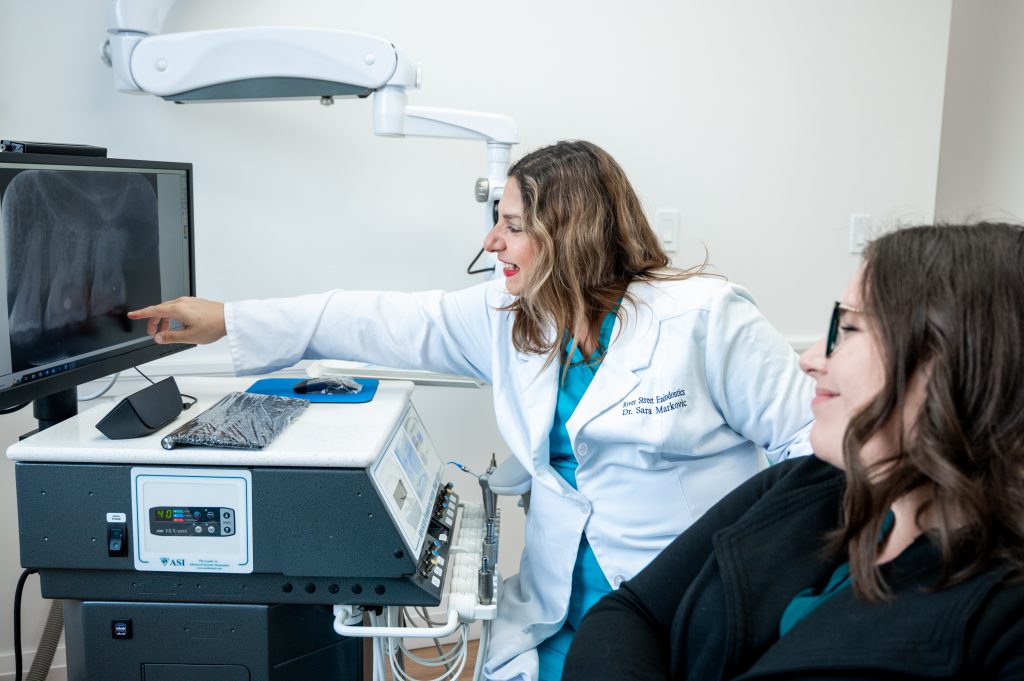
Here are some FAQ’s commonly asked by patients regarding the root canal procedure and post operative care.
1. What is a root canal?
A root canal is a dental procedure aimed at removing the infected or damaged pulp from inside a tooth. This involves cleaning, filling, and sealing the root canal to save the tooth.
2. Why do patients need a root canal?
When tooth pulp is infected or harmed, it can lead to pain and potential abscesses or tooth loss. A root canal spares your tooth by eliminating the infected pulp, preventing further complications.
3. Does a root canal hurt?
The root canal procedure is usually performed under local anesthesia and is relatively painless. After the procedure, some mild discomfort or sensitivity may be experienced but this can usually be managed with over-the-counter pain medications. For more information, please visit our blog post on if root canals hurt here.
4. How long does a root canal procedure take?
The length of the procedure can vary based on factors such as the tooth’s location, complexity and the extent of the infection. On average, most root canal procedures take around two to three hours to complete.
5. What should I expect after a root canal procedure?
After the procedure, you may experience some mild discomfort or sensitivity but this can usually be managed with over-the-counter pain medications. You will also need to return to the dentist for a follow-up visit to have a permanent crown or filling placed. Good oral hygiene and regular check-ups at your dentist are important to maintain the health of the treated tooth.
6. How long does a root canal last?
With proper care, many treated teeth can last a lifetime! One of the most detailed studies examined the long-term efficacy of 487,476 root canals. According to this report, 98 percent of root canals last one year, 92 percent last five years, and 86 percent last ten years or more. Molars treated by endodontists had a significantly higher 10-year survival rate than molars treated by general dentists.
7. Are there any alternative treatments to a root canal?
In some cases, a root canal may not be necessary, and other treatments such as a filling or crown may be recommended. However, if the pulp inside the tooth is infected or damaged, a root canal is usually the best option to save the tooth and prevent further problems. Our diagnostics involve advanced technologies, such as x-rays and 3D Cone Beam Computed Tomography (CBCT), which enable accurate treatment assessment.
8. Why choose River Street Endodontics?
At River Street Endodontics, we are committed to preserving your dental health and are proud to offer:
- Modern cutting-edge techniques
- Welcoming and professional staff
- Free on-site parking and TTC access
- Evening, emergency and weekend appointments upon request
- Use of modern technology and specialized techniques
- Treat patients like family
If you have inquires related to scheduling and insurance, we have complied a list of the most frequently asked questions. Find the answers you are looking for right here.